About the Author
Harvey A. Dorfmans background has been in education as a teacher, counselor, coach, and consultant. He has a Masters Degree in Communications/Psychology and is most knowledgeable about baseball and the factors necessary for success in the game. He was employed from 1984 through 1993 as the Oakland As full-time instructor/counselor and from 1994 through 1997 with the Florida Marlins. He joined the Tampa Bay Devil Rays in the same capacity in 1998. In 1999 Dorfman became a full-time sport psychology consultant for the Scott Boras Corporation. He lectures extensively on sports psychology, management and leadership training, and personal development. He has, as well, been a consultant to the Vancouver Canucks and the New York Islanders of the NHL, and to a number of major universities. In addition he has experience as a newspaper columnist and free-lance journalist, writing for The New York Times, Boston Globe, and Miami Herald, among others. In 1989, his first book, The Mental Game of Baseball: A Guide to Peak Performance, co-authored with Karl Kuehl, was released. Published by Diamond Communications, Inc., this bestselling book is considered to be the classic guide to developing the mental mechanics of the game. In 2000, Dorfmans The Mental ABCs of Pitching: A Handbook for Performance Enhancement was released, also by Diamond Communications, Inc.

The Mental Keys to Hitting

An imprint of Globe Pequot
Trade Division of The Rowman & Littlefield Publishing Group, Inc.
4501 Forbes Boulevard, Suite 200, Lanham, Maryland 20706
Distributed by NATIONAL BOOK NETWORK
800-462-6420
Copyright 2016 Anita Dorfman
All rights reserved. No part of this book may be reproduced in any form or by any electronic or mechanical means, including information storage and retrieval systems, without written permission from the publisher, except by a reviewer who may quote passages in a review.
British Library Cataloguing-in-Publication Information Available
Library of Congress Cataloging-in-Publication Data Available
ISBN 978-1-63076-186-8 (paperback)
ISBN 978-1-63076-187-5 (e-book)
 The paper used in this publication meets the minimum requirements of American National Standard for Information SciencesPermanence of Paper for Printed Library Materials, ANSI/NISO Z39.48-1992.
The paper used in this publication meets the minimum requirements of American National Standard for Information SciencesPermanence of Paper for Printed Library Materials, ANSI/NISO Z39.48-1992.
Printed in the United States of America
For Anita, Melissa, and Dan:
The top of my batting order.
Some of the material in this book previously appeared in:
@ THE PLATE , a newsletter,
published by MasterPlan Sports & Fitness
&
PRO, a magazine distributed to professional athletes,
published by Street & Smith.
About the Author
Harvey A. Dorfman was a noted sports psychologist as well as a sports psychology counselor with the Scott Boras Agency. He began his career in baseball psychology with the Oakland Athletics as their full-time instructor and counselor. He later worked with the Florida Marlins and Tampa Bay Devil Rays in a similar capacity before joining the Scott Boras Agency. Recognized as a leading sports psychologist across the world, Dorfman was also a columnist and freelance journalist with articles appearing in The New York Times, The Boston Globe, and The Miami Herald. During his career, he lectured extensively on sports psychology, management and leadership training, and personal development as well as provided counseling services to professional teams in the NHL. He was the author of three other books: Coaching t he Mental Game , The Mental Game of Baseball , and The Mental ABCs of Pitching.
Foreword
IN APPRECIATION OF HARVEY DORFMAN
By Rick Wolff
When Harvey Dorfman passed away in 2011 at the age of 75, major league baseball lost one of its all-time greats.
Over the last 30 years, just about every major league player, general manager, field manager, and agent either knew Harvey or certainly had heard of his impact. They all knew of the mental magic he worked on talented ballplayers.
Harvey was indeed a singular individual, certainly one of a kind.
So... who was Harvey Dorfman?
In short, he introduced the world of major league baseball to the wonders of sports psychology. And he did it in a most unique and unusual way.
You know the old Yogi Berra expression that half of this game is 90 percent mental? I dont know if Dorfman ever met Yogi, but trust me on this: Harvey certainly agreed with Yogi. Baseball, which is a game based upon constant failure and daily disappointment, is pockmarked by all sorts of mental distractions, obsessions, anxieties, and even superstitions. Harvey knew all of this, inhaled it all, and helped pro players of all stripes come to terms with their fears.
A man of apparent contradictions, Harvey was a most educated and literate gentleman. He was a man of letters, a true scholar. Yet to better communicate with ballplayers, he could swear like a drunken sailor with enough profanity mixed in to peel paint off a wall. Harvey offered no apology for this approach; he just knew that ballplayers would feel more comfortable with him if he spoke the language of dugouts.
But Harvey was indeed a lifelong lover of books. When I first met him and his lovely wife, Anita, at their home in Prescott, Arizona, an entire side of their living room wall was stacked from floor to ceiling with books and more books. Originally trained as a high school English teacher, Dorfman consumed the New York Times Book Review each week in much the same way he would go over the daily baseball box scores.
Back in the 1970s Harvey, Anita, and their two kids resided in Vermont, where Dorfman taught in a small private school and wrote newspaper columns. He was very proud that he coached the schools girls basketball team to great success. But during the summer months Dorfman would attend Vermont Expos minor league games, and it was there that he befriended Karl Kuehl, who oversaw the Expos minor league system.
Over the course of that summer, Kuehl became so impressed with Dorfmans approach to baseball that when Kuehl left the Expos to join the Oakland Athletics, he made sure to hire Harvey as a kind of mental skills coach.
This was a totally new concept. Understand that this was unprecedented in organized baseball. For example, when I was playing in the Detroit Tigers organization in the early 1970s, after having studied psychology as an undergraduate at Harvard, the prevailing attitude in pro baseball was that any player who needs to talk to a shrink needs to have his head examined.
As such, when Dorfman was hired by Oakland, this was a monumental breakthrough for sports psychology. But in truth, Harvey was never trained as a psychologist; he was a school-teacher and coach. He never had a doctorate in psychology.
But he possessed one amazing skill: He knew how to communicate with ballplayers. He knew how to get them to open up about their fears, worries, and insecurities.
And then, once the superstar millionaire ballplayer would confide in Harvey about his batting slump or how he cant throw strikes any more, Harvey would actively listen. But he didnt offer sympathy or offer a kindly smile.
Rather, just the opposite. Harv would roar at the player and demand in a loud voice: Okay, hot shot, youre hitting under the Mendoza line.... Tell mewhat are you going to do about it? How are you going to make the appropriate adjustments?



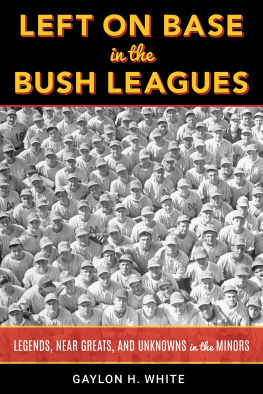
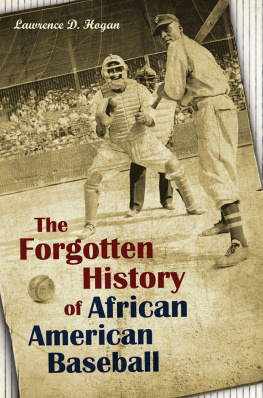
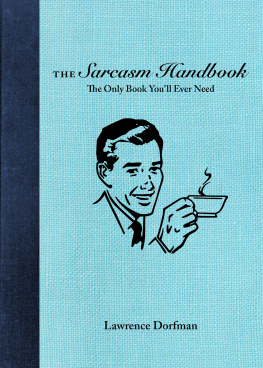



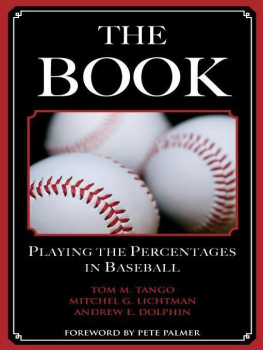
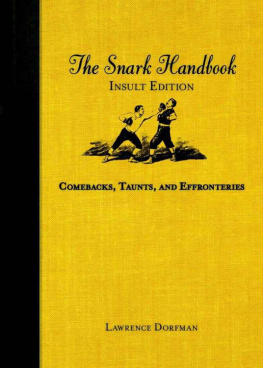


 The paper used in this publication meets the minimum requirements of American National Standard for Information SciencesPermanence of Paper for Printed Library Materials, ANSI/NISO Z39.48-1992.
The paper used in this publication meets the minimum requirements of American National Standard for Information SciencesPermanence of Paper for Printed Library Materials, ANSI/NISO Z39.48-1992.